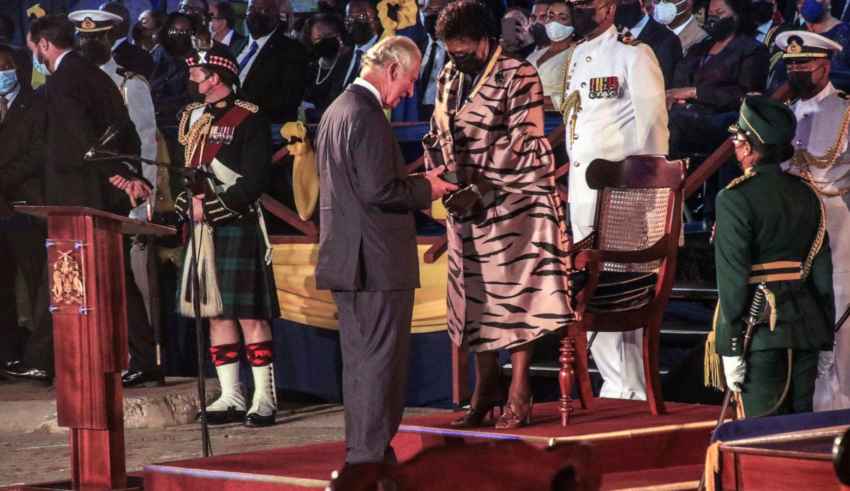
For the ones that are not aware, Barbados is a Caribbean island that was once part of the British colonial network, as a matter of fact, it became a colony in 1625 when the first English settlers arrived in the area, actually, England was the first European nation to make a permanent settlement there, unlike fellow EU members Portugal and Spain who briefly colonized the island, little did they know that Barbados would soon become the third-largest English colony to be located in the western hemisphere, in truth, Barbados in many ways was England’s first experimental tropical agricultural export colony, and a successful one for various reasons.
In addition, during The English Civil War, even rebels and criminals were transported to Barbados by the civilian Puritan government in charge of England at the time, alongside that, the dynamics of the Barbadian population also varied significantly from those of other English colonies in the Caribbean, even though black people became a majority of the population as they did in the other islands, the race ratio in Barbados was never so acute, as a result, it’s not surprising that Barbados was the only one of British islands to support the passage of the act abolishing the slave trade.
Furthermore, unlike other Caribbean islands, Barbados remained a British colony until its independence in 1966 when it became a self-governing constitutional monarchy with Queen Elizabeth II as the titular head of state, in truth, it has a legislature that remains essential British as well as a prime minister who leads the government and a parliament that is democratically elected and makes government decisions on the island, It also maintains its historical connection to England by being a member of the Commonwealth of Nations, however, because of its jurisdiction, it needed to develop international connections and status through membership in the United Nations and the Organization of American States.
Barbados’ push toward republicanism dates back at least 40 years, though it gained momentum during the global Black Lives Matter protests those who support the push for a new system of government say it has no relation to this, the country will now be the fourth Caribbean country to cut ties with the monarchy, leaving just eight other former British colonies in the region pledging allegiance to the crown. Guyana, Trinidad and Tobago, and Dominica all replaced Queen Elizabeth as head of state in the 1970s, soon after gaining independence from the United Kingdom.
Some are hoping that Barbados’ decision will be a catalyst for more changes in the region, or at the very least renew conversations about colonialism, reparations, and the legacy of the British monarchy, in addition, Caribbean leaders have long complained that the days of receiving financial assistance and other benefits from the UK went out the door the minute they decided to strike out on their own.
This led to the fact that, on the 55th anniversary of the country’s independence, Barbados broke up with their ruler and instead swear in a local Barbadian president as head of state, in doing so, Barbados became a republic.
The announcement was not a surprise for anybody on the tropical island, however, becoming a republic separate from the British monarch, has been a matter of bipartisan consensus for a while in Barbados, “It was a convenient distraction from COVID and the economic crisis we are in,” Guy Hewitt, a former high commissioner for Barbados in the United Kingdom and a member of the opposition party, said.
While officially, the United Kingdom says it respects the country’s decision, unofficially, Mason’s announcement came as a surprise for many high-level British officials as the last time a country in the Caribbean said farewell to the queen was more than 40 years ago when Dominica declared itself an independent republic in 1978.
Moreover, as a republic, Barbados is cutting one of the last remaining ties to the British crown—except for one, the country will remain a member of the Commonwealth of Nations, an association of 54 member states, mostly former British colonies and dependencies working together to promote good governance, free trade, economic cooperation, human rights, and social development, one significant change for Barbados is that it will no longer have to seek the queen’s blessing on appointments of ambassadors and other diplomats.
“After 396 years of British rule, and probably just over 386 years of British monarchical rule,” Mottley said in her remarks, “the time has come for us to express the full confidence in ourselves as a people and to believe that it is possible for one born of this nation to sign off finally and completely.”
References:
Barbados becomes a republic renouncing British queen, available at:
https://www.aljazeera.com/news/2021/11/29/barbados-set-to-become-a-republic-ditching-british-queen
a new Republic is born, available at:
Barbados finally cuts ties, available at:
Barbados is ready to say goodbye to the Queen, available at:
Slavery and Economy in Barbados available at:
https://www.bbc.co.uk/history/british/empire_seapower/barbados_01.shtml
Barbados’ heritage, available at:
By The European Institute for International Law and International Relations.















